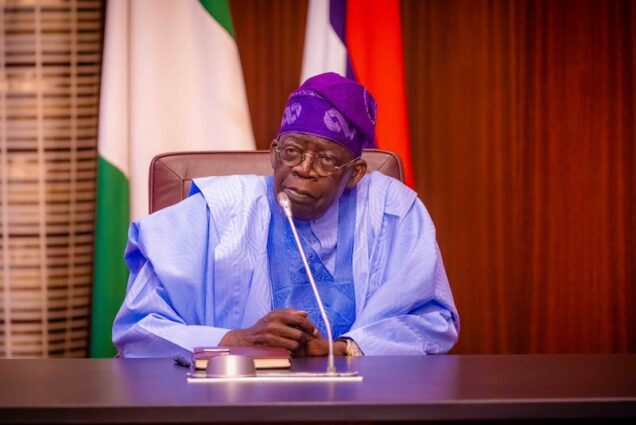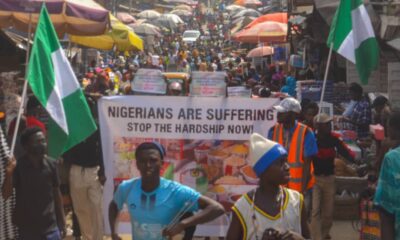Nigeria News
Hunger protest: FG allocates ₦570 billion grants to state governments

Following widespread concerns about hunger and hardship across the country, the Federal Government has announced the release of ₦570 billion to the 36 states to enhance livelihood support for their citizens.
In a national address on Sunday, President Bola Tinubu revealed that the total fiscal revenue for the Federal Government reached ₦9.1 trillion in the first half of 2024, a significant increase from the previous administration’s earnings.
“More than ₦570 billion has been allocated to the 36 states to expand livelihood support for their residents. Additionally, 600,000 nano-businesses have already benefited from our nano-grants, with 400,000 more expected to receive support,” the President stated.
He highlighted that Nigeria’s debt burden has decreased, with revenue dedicated to debt service dropping from 97% in 2023 to 68% in 2024. The country has also settled legitimate foreign exchange obligations of about $5 billion without adversely affecting its programs.
The reduction in debt has provided greater financial freedom, enabling increased spending on essential services like education and healthcare.
Despite Nigeria’s substantial oil and gas resources, President Tinubu noted that his administration inherited a country heavily reliant on oil and neglecting its gas resources while subsidizing fuel costs. This situation led to the launch of the Compressed Natural Gas (CNG) Initiative.
“We are blessed with both oil and gas resources, but our country was previously dependent solely on oil-based petrol, neglecting its gas resources. We were also using foreign exchange to subsidize fuel. To address this, we introduced the CNG Initiative to power our transportation sector and reduce costs. This initiative will save over ₦2 trillion monthly by cutting the importation of PMS and AGO, allowing us to invest more in healthcare and education,” Tinubu explained.
During the broadcast, Tinubu also expressed his administration’s readiness to address the concerns of protesters involved in the nationwide demonstrations that began on August 1, 2024.
Regarding the increase in revenue, the President attributed it to efforts in curbing leakages, introducing automation, and creatively mobilizing funds without imposing additional burdens on the populace.
He noted that productivity in the non-oil sector is steadily increasing, taking advantage of the current economic environment.
“In the past 14 months, our government has made significant progress in strengthening the foundation of our economy for a future of prosperity. Aggregate government revenues have more than doubled, reaching over ₦9.1 trillion in the first half of 2024, thanks to our efforts to block leakages, automate processes, and mobilize funding creatively without adding to the people’s burden,” Tinubu said.
He also announced plans to distribute one million low-cost or free conversion kits to commercial vehicles that transport people and goods, which currently consume 80% of imported petrol and diesel.
“We have begun distributing conversion kits and setting up conversion centers across the country in collaboration with the private sector. We anticipate that this CNG initiative will cut transportation costs by approximately 60% and help to curb inflation,” Tinubu disclosed.
While licensed individuals import diesel into Nigeria, the Nigerian National Petroleum Company Limited remains the sole importer of petrol. Despite being Africa’s largest oil producer, Nigeria relies on imported petroleum products due to limited refining capacity.
















